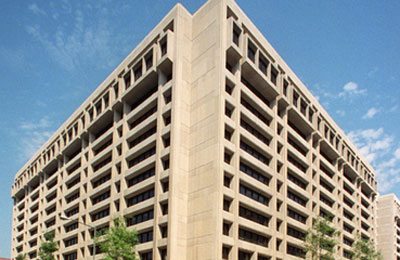
IMF to loan $560m to Yemen
Sanaa, August 8, 2014
Yemen has reached agreement with the International Monetary Fund on a $560 million loan, the finance minister said on Friday, after the government cut fuel subsidies and ordered curbs on public spending.
The second poorest Arab country has struggled to pay public sector salaries and finance food and energy imports, leading to power cuts and fuel shortages since 2011 as a fight against al Qaeda militants and other rebel groups consumes state funds.
Planning and Finance Minister Mohammed al-Saadi said the funds would be paid over three years and the government expected the first payment within two months.
Yemeni officials hope the IMF deal will help unlock more funds from donor countries, which have so far been reluctant to contribute due to fears of corruption and a lack of progress in economic reforms.
"There is an improvement in our revenues and the IMF will support the government's position before donor countries," Saadi said.
The country of 25 million has been struggling to rebuild since mass protests in 2011 forced long-serving President Ali Abdullah Saleh to step down, plunging it into financial and political turmoil.
Al Qaeda in the Arabian Peninsula (AQAP) has exploited the resulting power vacuum and tried to carve out areas of dominance in the south and east of the country.
Donors have so far pledged some $8 billion to Yemen, but little of the money has filtered through.
The pan-Arab Al-Hayat newspaper reported on Friday that the agreement, which it said had been agreed in talks held in Jordan in May, was provisional and awaiting endorsement by the IMF's board.
No comment was immediately available from the Fund.
Saadi told Reuters that a decision last month to "reform petroleum prices" helped clinch the deal.
Yemen raised fuel prices as part of efforts to reduce energy subsidies to ease the burden on its budget.
It resumed pumping crude through its main export pipeline - a key source of revenue - on Friday after repair works were completed, government and oil sources said, more than a week after armed men blew it up.
The IMF has pressed Yemen to cut energy subsidies that cost the state $3.07 billion last year, equivalent to 30 per cent of revenues and 21 per cent of expenditure.
But reducing subsidies is fraught with risk in a country in which a third of the population of 25 million lives on less than $2 a day, and an austerity package announced last month did not address subsidies.
In July, President Abd-Rabbu Mansour Hadi ordered a clampdown on public sector spending, restricting foreign travel for ministers and ordering a feasibility review of state-owned companies.
Yemen's previous finance minister told Reuters in May the country was seeking "substantially more" than $560 million from the IMF, and that the Fund's board was expected to finalise a deal in July. - Reuters







